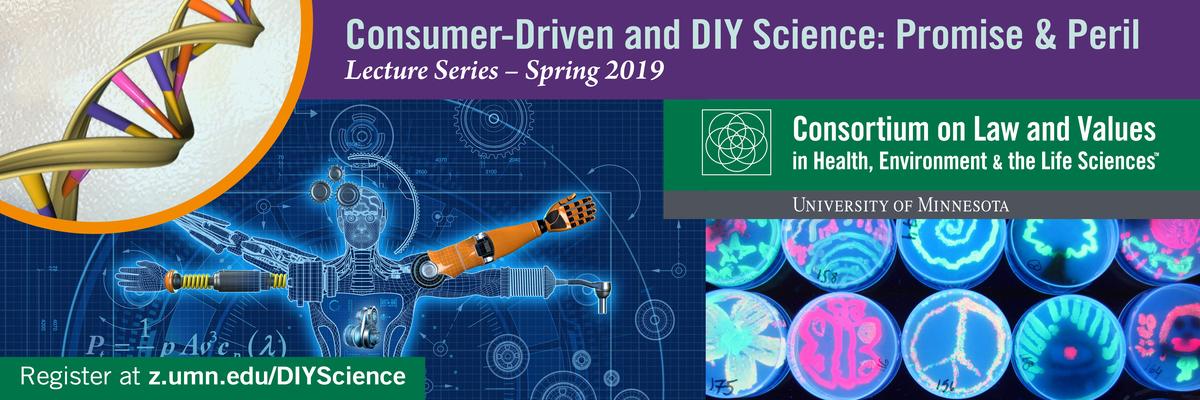
Thursday, February 28, 2019 - 11:30am to 1:00pm
Mississippi Room, Coffman Union
Advances in the field of biotechnology are providing tremendous promise with respect to new ways to combat disease, produce useful chemicals, and remediate environmental damage, to name a few applications. However, the same capabilities are becoming increasingly accessible to actors wishing to do harm to humans, animals, plants, and the environment. Prof. Imperiale will discuss the results of a recent National Academies of Sciences, Engineering and Medicine (NASEM) study that provides a framework for assessing vulnerabilities that are posed by emerging biotechnologies, and the use of that framework to assess concerns related to a set of synthetic biology-enabled capabilities.
Commentator:
Michael T. Osterholm, PhD, MPH
Director, Center for Infectious Disease Research and Policy (CIDRAP)
Regents Professor
McKnight Presidential Endowed Chair in Public Health
Distinguished Teaching Professor, Environmental Health Sciences
Professor, Technological Leadership Institute
Adjunct Professor, Medical School
University of Minnesota
Moderator:
Amy Kircher, DrPH
Director, Food Protection and Defense Institute
Assistant Professor, College of Veterinary Medicine
University of Minnesota
Resources:
- Committee on Strategies for Identifying and Addressing Potential Biodefense Vulnerabilities Posed by Synthetic Biology (Michael Imperiale, Chair). Biodefense in the Age of Synthetic Biology. Washington DC: National Academies Press, 2018.
- Imperiale MJ, Casadevall A. A New Synthesis for Dual Use Research of Concern. PLOS Medicine 2015;12(4):e1001813.
- Vavitsas K. Controlling Biosafety and Biosecurity Threats, An Interview with Michael Imperiale. PLOS Synthetic Biology blog 2019.
Continuing Education Information:
To earn Continuing Education credits, webcast viewers must email us at [email protected] during the webcast to confirm their wish to receive CE credits. Later viewing of this video will not qualify for credit.
Attorneys: The Minnesota State Board of Continuing Legal Education approved 1.5 Continuing Legal Education (CLE) credits; Event Code is 265319.
Continuing Medical Education:
Accreditation Statement
In support of improving patient care, University of Minnesota, Interprofessional Continuing Education is jointly accredited by the Accreditation Council for Continuing Medical Education (ACCME), the Accreditation Council for Pharmacy Education (ACPE), and the American Nurses Credentialing Center (ANCC) to provide continuing education for the healthcare team.
Credit Designation Statements
American Medical Association (AMA)
The University of Minnesota, Interprofessional Continuing Education designates this live activity for a maximum of 1.5 AMA PRA Category 1 Credits™. Physicians should claim only the credit commensurate with the extent of their participation in the activity.
Other Healthcare Professionals
Other healthcare professionals who participate in this CE activity may submit their statement of participation to their appropriate accrediting organizations or state boards for consideration of credit. The participant is responsible for determining whether this activity meets the requirements for acceptable continuing education.

Michael Imperiale, PhD, is Associate Vice President for Research, Research Policy and Compliance at the University of Michigan. Imperiale leads the development and review of research policy, and serves as the key point of contact for research compliance. Imperiale is the Arthur F. Thurnau Professor of Microbiology and Immunology, and also oversees issues surrounding responsible conduct of research and serves as the institutional Research Integrity Officer.